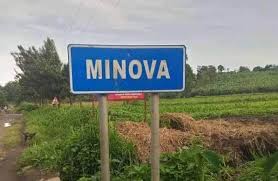Institute for Human Rights and Development in Africa (IHRDA)
Ten Years Of Standing Up For Human Rights in Africa
11 February 1998 – 11 February 2008
The Institute for Human Rights and Development in Africa (IHRDA) began its legal existence on 11 February 1998, ten years ago, in The Gambia. The mission of IHRDA was to increase the accessibility and effectiveness of the African Commission on Human and Peoples’ Rights, then the sole body within the African human rights system, while setting an example of transparency and good management.
Ten years is a significant period of time in the life of any organisation. During this decade, IHRDA trained hundreds of human rights activists and launched or assisted in dozens of cases before the African Commission. Highly qualified lawyers have worked with IHRDA in litigation and advocacy projects for the respect and promotion of human rights. With the support of its partners and well-wishers, IHRDA has earned the reputation of a committed, home-grown pan-African promoter and defender of human rights. IHRDA’s founders were replaced by a dynamic new leadership, who with the staff, are committed to taking the organisation’s vision and mission further.
At the level of continental institutions, much change and evolution occurred during this decade. Firstly, the Organisation of African Unity (OAU) transformed its name, structure and outlook into the African Union (AU). In the specific area human rights, two entirely new regional institutions – the African Committee of Experts on the Rights and Welfare of the Child and the African Court on Human and Peoples’ Rights – have come into being. In addition to the protocols to the African Charter establishing these bodies, the African Union adopted the Protocol on the Rights of Women in Africa.
However, despite these achievements, the human rights field in Africa stagnated in certain areas. On the one hand, the founding of new institutions, as well as the increasing awareness among civil society players, reinforced the African human rights system. Several African countries created national human rights institutions (NHRIs) with varying degree of adherence to the Paris Principles promoting the independence of such organisations. On the other hand, African regional mechanisms still struggle with lack of resources, lack of organisation, and political interference that undermine their effectiveness.
Some of the gravest human rights crises in Africa today have not been sufficiently addressed during this period of ten years. Both the African Charter on Human and Peoples’ Rights and subsequent international instruments place economic, social and cultural rights on equal footing with civil and political rights. However, looking at the jurisprudence and the work of the Africa Commission and human rights Non-Governmental Organisations (NGOs) around the continent, it would appear more emphasis is placed on civil and political rights. Yet, millions of Africans do not have access to water, food, health, adequate housing, decent gainful employment and a safe environment. Unfortunately, economic, social and cultural rights continue to be perceived as “second-rate” rights. Recognising that the indivisibility of human rights is central to the harmony and development of societies, IHRDA, in its current strategic plan, is working to mainstream socio-economic rights and promote training and litigation for their protection.
Taking stock as IHRDA celebrates its 10th anniversary, the message is that all human rights institutions, as well as NGOs in Africa, have far more work to do. While accepting that no matter how successful a single or several individual organisations may be, only collective work can bring true and universal respect for human rights. IHRDA, building on its strong past, reaffirms its commitment to continue its work for human rights on the continent. It will keep on meeting the challenges, both short and long term, in order to make serious roads into securing justice and respect for human rights.
For further information, please contact us.




